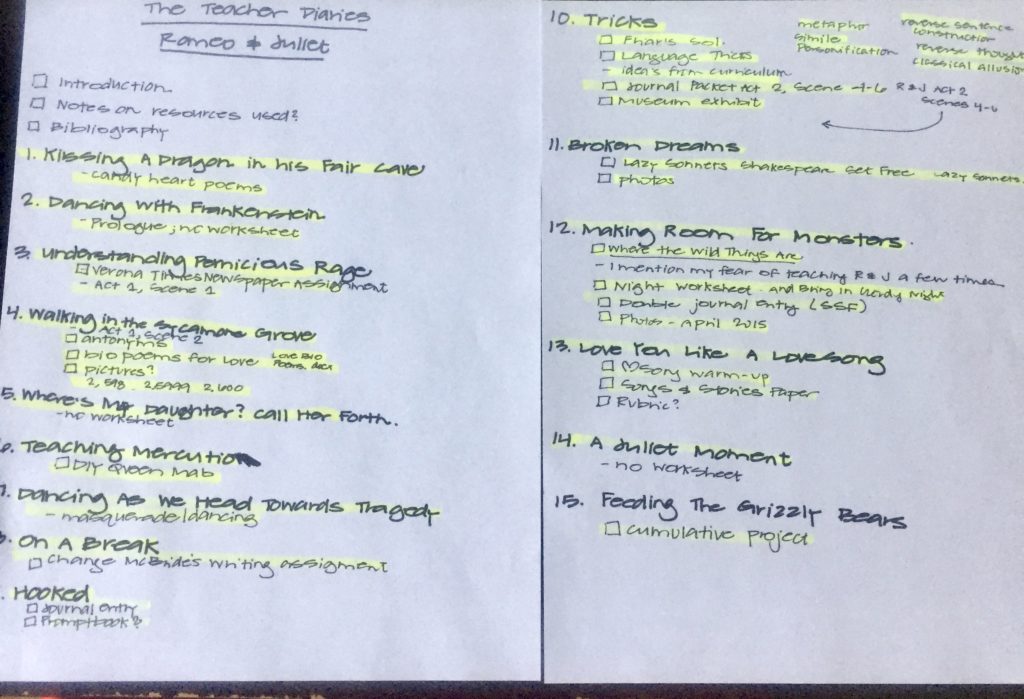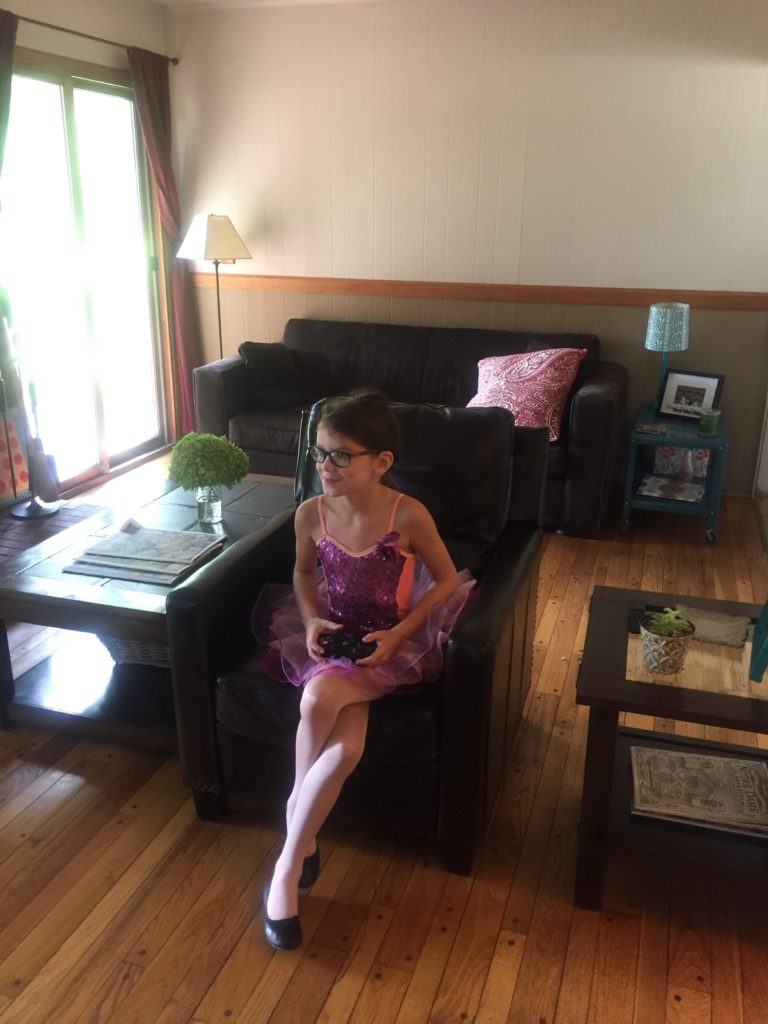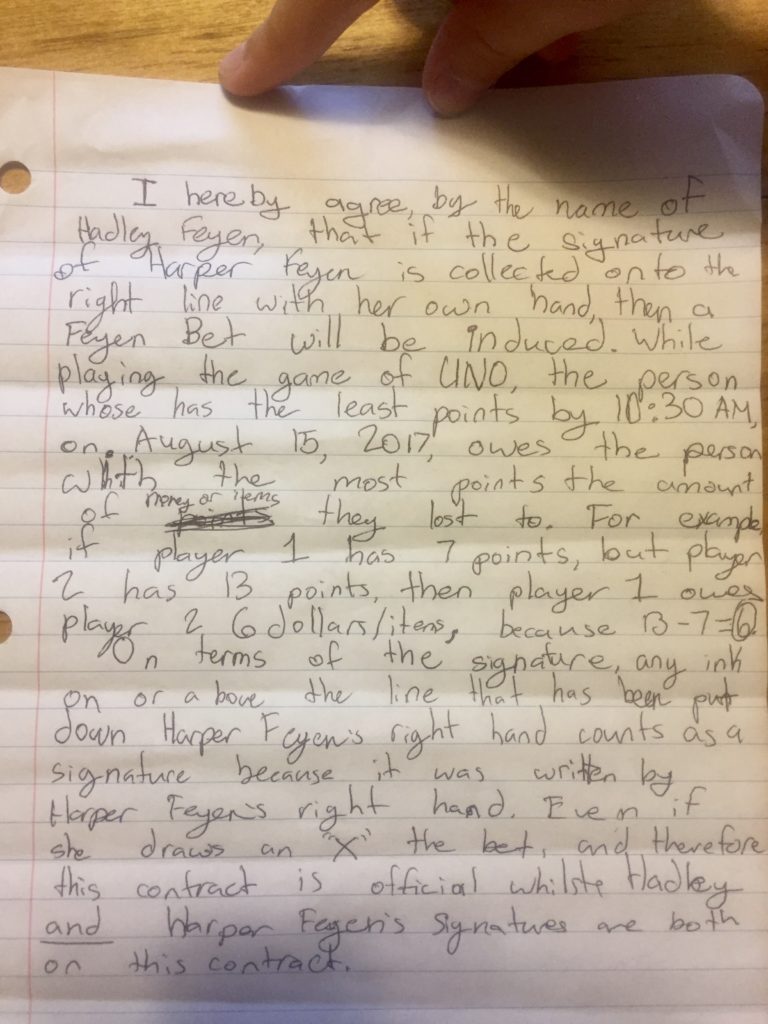“When creating a space, you must consider the relationships among all the elements in the room.” This is from The Home Design Handbook written by Carley Roney and the editors of TheNest.com. For example, if you tell your husband on a warm spring day, while the two of you are walking along the Potomac River in Georgetown that someday you believe with all your heart the two of you will end up here, that you’ll live in a row house where you’ll throw dinner parties around a long oak table your husband will have built, that you’ll write books and also teach, and your husband will be a big shot scientist – the Chief of all scientists – and he’ll go to work at the White House or the Hill and he’ll never have to worry about furloughs or proving the validity of science because he will have single-handedly brought all the parties together and the Hunger Games are over, your husband might nod, hold back laughter, squeeze your hand a tad, and say, “Where are we gonna put this table?”
Because the table’s been built. And as a matter of fact, our little cranny of Ann Arbor is called Georgetown. Last week, I woke up to write, and after about 90 minutes, realized I was at the end of my second manuscript. It would be another 4-5 hours of work, and I could click “send,” but Hadley and Harper scuffled their way downstairs, and it’s summer – the most glorious summer I think Michigan has ever presented – and the outline and notes and chapters were spread all over the table Jesse built for me. Where should all of this go? How do I arrange it so I can create space and also keep all the relationships intact?
It could be more about re-arranging than it is about arranging. You have to try something first – put a thing or two down, and see what you think. You have to know it doesn’t have to stay this way. My mom, who is notorious for re-arranging her home (ask anyone in the Chicagoland area if you don’t believe me), says, “You have to live with it for a while. See what you think.”
I decided to keep working. I quickly made the girls breakfast, and told them what was happening as I poured glasses of milk. “I’m going to finish a manuscript today,” I said, pushing aside papers on the dining table so the girls could have a place to eat. “I don’t know how long it’ll take.”
“Your book? You’re finishing your book?” Harper asked, lifting the glass of milk with both hands.
“It’s not a book, yet. It’ll probably be a while before it’s a book.” I pivoted and walked into the kitchen to put the milk away, fighting the voices in my head that scream: It’ll never be a book! Who would read it anyway? What do you know about Romeo and Juliet and teaching middle schoolers? You left!
“It’s a foundation,” Hadley said, through bites of apple. She lifted an arm and shrugged a shoulder. “You gotta start somewhere.”
Try something.
Put a thing or two down.
See what you think.
Part of living with something and seeing what I think about it, is managing the guilt I carry: I didn’t start writing in earnest until I had children (consequently, learning how to write and writing about motherhood saved me, but that’s a story for another day). Mornings or evenings or weekends get taken up because I choose to write. Sometimes that means I miss out on a soccer game or it means I take my notebook with me and write while one of the girls plays defense. I left a teaching job mid-year, something that will haunt me for the rest of my life. My house is dirtier than it should be.
Guilt over what should’ve been done or could’ve been done (or still needs to be done but I don’t want to do it), alongside my “Mean Callie” voice never go away. I’ll lose my mind if I focus on trying to make those things disappear, so I’ve decided that there’s plenty of room at the table for guilt and Mean Callie. They can even talk while I’m writing. That’s fine. They know their power. They know they’ll hurt my feelings, and make me second guess myself. They know they make me lost, but guilt and Mean Callie don’t have the last word.
Last night, I read this great line from Justin Cronin’s The Passage: “Feeling lost is just a part of it.” That’s what guilt and fear and sadness and anger do – they make us lost. I’ve learned though, that I can still write while I am lost. I think it might be the only way for me to write. I write because I want to figure something out. I write because I want to remember. I write because I’m lost, and it might not be that I’m looking to find something, rather, I’d like to wander around a bit. Maybe I need guilt and Mean Callie. Maybe it’s good they sit right in front of me, and I look them in the eye and say, “Go on, with your bad selves. Keep on talkin’. I’m well aware of what you think. I’m just going to go ahead and keep doing what I’m doing.”
“You gotta start somewhere,” I agreed with Hadley, as I spread peanut butter over toast, and brought it to the table.
“So you guys don’t mind hanging around here for a bit while I get this done?” I sat with them and we talked about what there was to do: piano, read, games, and of course, the beloved screen time. “Yes, you can play Minecraft, but no more than the amount of time you can usually spend playing,” I warned.
“I think I’ll wear my princess dress today,” Harper said, sliding her finger through peanut butter.
“Seriously?”Hadley muttered.
“Princesses play Minecraft,” Harper said, pointing her peanut butter finger at her sister.
She didn’t find the dress, but luckily, she found her old ballet performance leotard. “That’s fine,” Harper said, giving it a shake. “I’ll be a ballet fairy.”
The girls played a few rounds of Uno, and Hadley, always living by the motto: Raise the stakes or die, created this:
There’s nothing like a Feyen induced bet to get the day going. That’s what I always say.
They played, I went to work. There is a scene in a book called Loving Frank by Nancy Horan, where the main character in the story is sitting at a typewriter re-reading what she’d written earlier. She stretches her arms above her head, satisfied and a little surprised at what she’d gotten down on the page. I remember reading that and feeling jealous, and then guilty because I wanted to feel that way, too. This woman though, her written words came at the cost of broken relationships. She arranged her life so that it made no space for any other relationship save for the one with a rather famous architect and her typewriter. I wish she could’ve figured out how to make room for what she loved while keeping what she had.
It all comes at a cost. It’s a risky business, this art of arranging, but I read through what I wrote at the table Jesse built for me, in our home in Georgetown, and I felt how that woman felt in Loving Frank felt: satisfied and a little surprised with myself. This is not to say I’ve figured out how to be a mom and be a writer, or how to be anything and be a writer. I will miss more soccer games. I won’t make all the school events. I haven’t mustered up the nerve to go back to teaching middle school, and I don’t know when I will. There will be revisions. There will be re-arranging. I am lost. But that’s only a part of it.
I think this manuscript has good bones. I like what I’ve tried. I like what I’ve put down. I’m proud of what I’ve arranged.
Here’s to the art (and grace) of re-arranging.




I need a good lawyer. Does Hadley have the time?